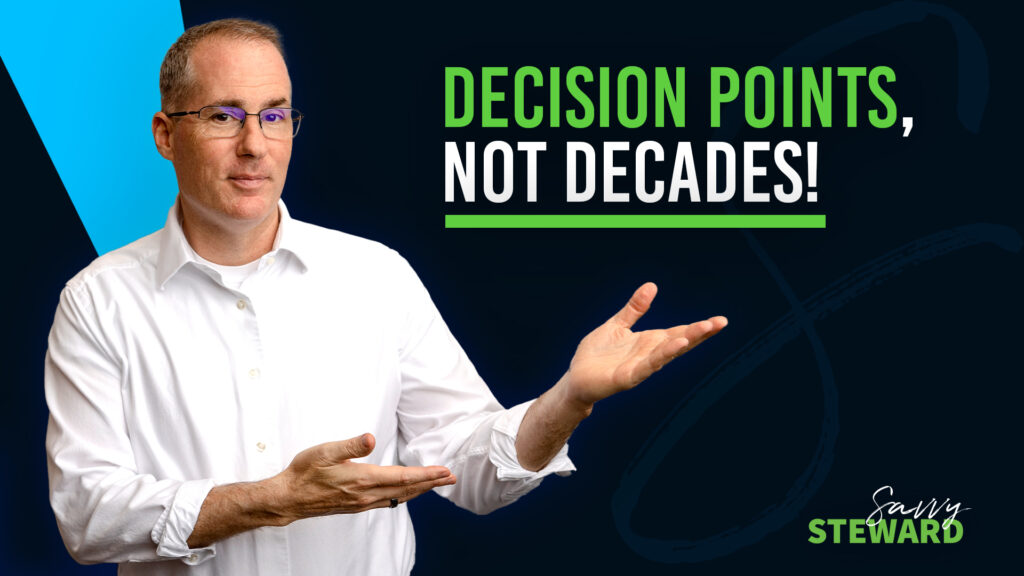- Choosing Your Copilot: How To Find The RIGHT Financial Advisor
- Why do you need a financial advisor?
- What value does a financial advisor bring?
- What are the key qualities to look for in an advisor?
- What are some red flags that suggest an advisor might not be the right fit?
- Why do worldview and values alignment matter in financial planning?
- How do communication and transparency define a great advisor?
- What are some tips for finding your financial copilot?
Choosing Your Copilot: How To Find The RIGHT Financial Advisor
Executive Summary
Finding the right financial advisor is like choosing a trusted copilot—they back you up, keep you steady in turbulent conditions, and help you navigate toward your goals with confidence. Discover how to identify the right advisor for your needs, what red flags to watch for, and why the right partnership can help you land safely on your financial goals.

Want to watch an in-depth exploration of this topic? Check out this video on my YouTube channel, @savvysteward: Choosing Your Copilot: How To Find The RIGHT Financial Advisor
Choosing Your Copilot: How To Find The RIGHT Financial Advisor
Have you ever wondered why even the most experienced pilots insist on having a copilot? I have a good friend who’s a skilled pilot, but he hires a copilot whenever he flies long distances. Why? It’s not because he lacks confidence or ability—it’s because he understands the value of partnership, especially in unpredictable conditions.
A great financial advisor works the same way. They’re your copilot, there to back you up, help you navigate challenges, and keep you on course toward your goals. But finding the right advisor isn’t always easy. In fact, many people delay connecting with an advisor simply because they’re unsure how to choose the right one for their needs.
So, how do you find the right financial advisor?
Why do you need a financial advisor?
Studies show that most people recognize their financial planning needs improvement but hesitate to seek professional help. A 2022 Northwestern Mutual study revealed that while 62% of U.S. adults admitted their financial planning needed work, only 35% worked with an advisor.
Why the disconnect? Often, people aren’t sure how to choose the right advisor, so they avoid the decision altogether. That’s a missed opportunity, because personalized advice can make a significant impact!
A Vanguard study found that using a financial life planning approach can potentially add over 3% net in annual returns. This isn’t just about investments—it’s about smarter strategies, avoiding costly mistakes, and aligning your finances with your goals.
What value does a financial advisor bring?
A great financial advisor offers more than just portfolio management. They bring:
- Smarter Allocation: Advisors tailor your financial plan to your goals, timeline, and risk tolerance. They adjust strategies as your life evolves and markets shift.
- Cost Efficiency: A skilled advisor helps you minimize fees and expenses, ensuring you keep more of what you earn.
- Emotional Discipline: Advisors provide perspective during market swings, helping you make rational decisions instead of emotional ones.
- Retirement Planning Expertise: Advisors guide you in creating tax-savvy withdrawal strategies, maximizing your resources for the life you envision.
What are the key qualities to look for in an advisor?
Start with referrals, but don’t stop there. A recommendation from a trusted friend is a good starting point, but dig deeper. Ask follow-up questions, like why they’re recommending this advisor, what makes the advisor stand out, how the advisor approaches financial planning, and whether their expertise aligns with your goals.
Credentials are essential. Look for certifications like CFP® (Certified Financial Planner) or CKA® (Certified Kingdom Advisor). These credentials ensure they have the expertise to handle your financial needs and are committed to acting in your best interest.
Alignment with your values is critical. A shared worldview ensures your advisor understands the heart behind your goals, whether that’s aligning finances with faith, focusing on stewardship, or building a legacy.
Clear communication builds trust. The right advisor explains complex concepts in a way that makes sense to you, provides transparent fee structures, and makes you feel heard and empowered.
What are some red flags that suggest an advisor might not be the right fit?
Cookie-cutter plans are a red flag. Beware of advisors who offer generic solutions instead of tailored strategies. Your financial plan should reflect your unique goals and circumstances.
Lack of transparency is another warning sign. If an advisor isn’t upfront about fees or avoids explaining recommendations, that’s a major concern.
Dismissive behavior shouldn’t be overlooked. An advisor who rushes through conversations or discourages questions may not have your best interests at heart.
Why do worldview and values alignment matter in financial planning?
Your financial plan isn’t just about numbers—it’s also about how those numbers support your life. The right advisor sees beyond the balance sheet to understand how your money aligns with your purpose. For clients of faith, a CKA® designation indicates the advisor integrates biblical principles into their guidance, prioritizing stewardship and alignment with beliefs.
When you and your advisor share a similar perspective, their advice is not only practical but meaningful. They’ll help you make decisions that align with your values, whether it’s charitable giving, retirement planning, or legacy building.
How do communication and transparency define a great advisor?
Great advisors don’t just provide answers—they ask thoughtful questions to understand your story, goals, and concerns. They break down complex concepts into understandable terms, clearly articulate the pros and cons of any recommendation, and provide detailed explanations of their fees and services.
Good communication builds trust, which is the foundation of a strong advisor-client relationship.
What are some tips for finding your financial copilot?
Choosing the right financial advisor is about more than expertise—you want someone who listens, aligns with your priorities, and empowers you to make confident decisions. A great advisor helps you manage your wealth and use it to support the life you envision and the legacy you want to leave.
Contact Information
Keith Demetriades, CFP®, CKA®, is dedicated to helping individuals, families, and organizations integrate faith-based principles into their financial planning. Oikonomia is a foundational concept in his practice, reflecting his commitment to ethical and values-driven financial management.
Keith welcomes conversations about the topics discussed in this piece and is available to assist in creating a financial plan that aligns with your faith and values. For more information or to start a conversation about your financial future, contact Keith Demetriades at (806) 223-1105 or visit his website at https://www.kingsview.com/advisor/keith-demetriades/.
Disclaimer: The information provided in this blog is for educational purposes only and should not be considered financial advice. Please consult a qualified financial advisor to discuss your specific situation and needs. Past performance does not indicate future results, and all investments carry risks, including potential loss of principal. Any financial product or strategy references are purely illustrative and should not be construed as endorsements or recommendations.



